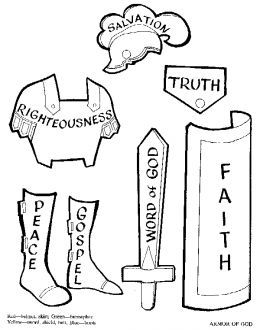
The bible, God’s word, contains thousands of promises. According to one person, who in my research is unnamed, there are 3573 promises. Are any of those promises for financial or material blessings for all Christians? Is the lack of prosperity a sign that a Christian has little or no faith, or doesn’t pray enough? What does the bible say?
The Bible Says that God Wants Us To Prosper
We've all heard the following scriptures quoted, and may have even quoted them ourselves, in order to receive blessings of material things including money, so we think. They are some of the favorite scriptures of those in the Christian community who practice what is called “Prosperity Theology”, “Prosperity Gospel”, or “Word of Faith”.
Mark 11:23 (NKJV) For assuredly, I say to you, whoever says to this mountain, 'Be removed and be cast into the sea,' and does not doubt in his heart, but believes that those things he says will be done, he will have whatever he says.
3 John 2 (NKJV) Beloved, I pray that you may prosper in all things and be in health, just as your soul prospers.
John 10:10 (NKJV) The thief does not come except to steal, and to kill, and to destroy. I have come that they may have life, and that they may have it more abundantly.
Matthew 21:22 (NKJV) And whatever things you ask in prayer, believing, you will receive."
Malachi 3:10 (NKJV) Bring all the tithes into the storehouse, That there may be food in My house, And try Me now in this," Says the LORD of hosts, "If I will not open for you the windows of heaven And pour out for you such blessing That there will not be room enough to receive it.
John 14:12-14 (NKJV) “Most assuredly, I say to you, he who believes in Me, the works that I do he will do also; and greater works than these he will do, because I go to My Father. And whatever you ask in My name, that I will do, that the Father may be glorified in the Son. If you ask anything in My name, I will do it.
People who follow prosperity theology believe and teach that financial or material blessing is the will of God for all Christians, and that faith, positive speech, and donations to Christian ministries will increase one's material wealth. Based on non-traditional interpretations of the Bible, often with emphasis on the Book of Malachi, the doctrine views the Bible as a contract between God and humans: if humans have faith in God, he will deliver his promises of security and prosperity. Confessing these promises to be true is perceived as an act of faith, which God will honor. This is believed to be achieved through visualization and positive confession, and is often taught in mechanical and contractual terms. The prosperity teaching later figured prominently in the Word of Faith movement and 1980s televangelism. In the 1990s and 2000s, it was adopted by influential leaders in the Charismatic Movement and promoted by Christian missionaries throughout the world, sometimes leading to the establishment of mega-churches. From Wikipedia article Prosperity theology (The article from which these quotes come names some churches and their leaders but I will not do that in this post)
In his letter to Timothy Paul warns him about false teachers and urged him and the Christians in Ephesus to avoid men who thought these kinds of things. He was referring to some of the sects that had infiltrated the early church.
1 Timothy 6:3-5 (NKJV) If anyone teaches otherwise and does not consent to wholesome words, even the words of our Lord Jesus Christ, and to the doctrine which accords with godliness, he is proud, knowing nothing, but is obsessed with disputes and arguments over words, from which come envy, strife, reviling, evil suspicions, useless wrangling of men of corrupt minds and destitute of the truth, who suppose that godliness is a means of gain. From such withdraw yourself.
The prosperity gospel closely resembles some of the destructive sects that infiltrated the early church. Paul and the other apostles identified them as dangerous false teachers and urged Christians to avoid them.
1 Timothy 6:9-11 (NKJV) But those who desire to be rich fall into temptation and a snare, and into many foolish and harmful lusts which drown men in destruction and perdition. For the love of money is a root of all kinds of evil, for which some have strayed from the faith in their greediness, and pierced themselves through with many sorrows. But you, O man of God, flee these things and pursue righteousness, godliness, faith, love, patience, gentleness.
If riches was the goal for the godly, why didn’t Jesus pursue it and teach His disciples to do likewise? Remember the only disciple concerned with wealth was Judas.

A favorite term in the Word of Faith movement is “positive confession.” This refers to the teaching that words themselves have creative power. What you say, Word of Faith teachers claim, determines everything that happens to you.
“Word of Faith” teaches that your confessions, especially the favors you demand of God, must all be stated positively and without wavering. Then God is required to answer (as though man could require anything of God!). Thus, God's ability to bless us supposedly hangs on our faith. James 4:13-16 clearly contradicts this teaching: “Now listen, you who say, ‘Today or tomorrow we will go to this or that city, spend a year there, carry on business and make money.’ Why, you do not even know what will happen tomorrow. What is your life? You are a mist that appears for a little while and then vanishes.” Far from speaking things into existence in the future, we do not even know what tomorrow will bring or even whether we will be alive.
In sharp contrast to the Word of Faith emphasis on gaining money and possessions in this life, Jesus said, “Do not store up for yourselves treasures on earth, where moth and rust destroy, and where thieves break in and steal” (Matthew 6:19). The irreconcilable contradictions between prosperity teaching and the gospel of our Lord Jesus Christ is best summed up in the words of Jesus in Matthew 6:24, “You cannot serve both God and money.”
Faith, according to the Word of Faith doctrine, is not submissive trust in God; faith is a formula by which we manipulate the spiritual laws that prosperity teachers believe govern the universe. As the name “Word of Faith” implies, this movement teaches that faith is a matter of what we say more than whom we trust or what truths we embrace and affirm in our hearts. - Got Questions.org
In my post “Can We Really Call Those Things Which Be Not As Though They Were?" I point out that the only person who can “call those things which be not as though they were”, is God.
Romans 4:17 (NKJV) (as it is written, "I have made you a father of many nations") in the presence of Him whom he believed--God, who gives life to the dead and calls those things which do not exist as though they did;
But I continue to hear, on television, radio, and read on the Internet, statements and comments by well-known and prominent pastors, teachers, evangelists, apostles, and others, that we can speak things into existence, and that we can have whatever we ask for in prayer. If we say it God is obligated to do it.
We as God’s created creatures do not have the power through our words or otherwise to create anything or cause anything that does not now exist to exist. The faith, that we need enough of, is faith in God Almighty not faith in the words that we speak even if those words are from the bible especially when they are taken out of the context in which there were written or spoken.
It’s one thing to pray, believe, and trust God for miracles. It’s quite to think that what we say has the power to produce miracles. God's Word has that power, but our words are not the same as God's Word. Not by a long shot.
Let’s take a closer look at the verses I presented at the beginning of this post.
● Mark 11:23-24 (NKJV) For assuredly, I say to you, whoever says to this mountain, 'Be removed and be cast into the sea,' and does not doubt in his heart, but believes that those things he says will be done, he will have whatever he says. Therefore I say to you, whatever things you ask when you pray, believe that you receive them, and you will have them.
This was Jesus’ response when Peter mentioned that the fig tree that He had cursed the previous day had withered away. Jesus used it as an example of faith in God. That faith was to be persistent and we are to keep on believing that God has already given us our request.
Sound exactly like the prosperity gospel doesn’t it. What the prosperity gospel proponents say is that if you don’t have it’s because you don’t have enough faith or haven’t prayed enough. That sounds very spiritual and right doesn’t it, but consider this.
James 4:3 (NKJV) You ask and do not receive, because you ask amiss, that you may spend it on your pleasures.
Prayer and faith are essential in the life of a Christian but using them to try and force God into giving us our desires goes against Jesus’ prayer before his crucifixion.
Luke 22:41-42 (NKJV) And He was withdrawn from them about a stone's throw, and He knelt down and prayed, saying, "Father, if it is Your will, take this cup away from Me; nevertheless not My will, but Yours, be done." (Emphasis mine)
● 3 John 2 (NKJV) Beloved, I pray that you may prosper in all things and be in health, just as your soul prospers.
This is simply a greeting. It’s how John begins his letter to Gaius, just like we might start a letter by saying I pray that all is well with you. It was not a promise to Gaius, and certainly not meant to be taken as a promise from God that believers will never get sick or will have material prosperity.
● John 10:10 (NKJV) The thief does not come except to steal, and to kill, and to destroy. I have come that they may have life, and that they may have it more abundantly.
The verses just before this one are the parable of the sheep and their good shepherd, Jesus, who calls them by name. The sheep know the good shepherd’s voice and follow. The abundance of here has to do with knowing and being known by Jesus, not material things.
The Tyndale Commentary explains, “He does not offer them an extension of physical life nor an increase of material possessions, but the possibility, nay the certainty, of a life lived as a higher level of obedience to God’s will and reflecting his glory.”
Ed Stetzer in his article: What Does it Mean to Have an Abundant Life? Some Thoughts on Prosperity” says;
“Abundant life is not about what we have. It’s not about what we get. It’s not about what we claim. Ultimately, abundant life is about what we receive as a gift from the Lord and to live knowing we are stewards of the blessings of God.
It’s not a sin to be rich (though it might be missing the point if we die rich). Furthermore, stewardship is not measure by what we have received, but by what we have given. At the end of the day, perhaps that is how we know we have an abundant life—when we have shared our life with others. When we have enough of the blessings of God (mercy, peace, love, grace, wisdom, etc.) to share with our others, and then actually do it; that’s when we truly have abundant life.”
● Matthew 21:22 (NKJV) And whatever things you ask in prayer, believing, you will receive."
This is the same event recorded in Mark 11:23-24. Jesus explained that such power (for even greater deeds) was available to them through believing prayer. This kind of faith, however, will only ask those things that it knows to be God's will. (Emphasis mine) - The Wycliffe Bible Commentary.
● Malachi 3:10 (NKJV) Bring all the tithes into the storehouse, That there may be food in My house, And try Me now in this," Says the LORD of hosts, "If I will not open for you the windows of heaven And pour out for you such blessing That there will not be room enough to receive it.
This verse is a powerful fundraising tool for the prosperity gospel but this verse has nothing to do with individual riches. The Israelites were robbing God by not giving enough food to the national storehouse that was used to feed the priests of Israel. So the priests were having to leave their priestly duties and take up farming to survive.
Nehemiah 13:10-13 (NKJV) I also realized that the portions for the Levites had not been given them; for each of the Levites and the singers who did the work had gone back to his field. So I contended with the rulers, and said, "Why is the house of God forsaken?" And I gathered them together and set them in their place. Then all Judah brought the tithe of the grain and the new wine and the oil to the storehouse. And I appointed as treasurers over the storehouse Shelemiah the priest and Zadok the scribe, and of the Levites, Pedaiah; and next to them was Hanan the son of Zaccur, the son of Mattaniah; for they were considered faithful, and their task was to distribute to their brethren.
God tells the nation of Israel to test him by giving obediently. If they did, he would reward them as he did in the past.
● John 14:12-14 (NKJV) "Most assuredly, I say to you, he who believes in Me, the works that I do he will do also; and greater works than these he will do, because I go to My Father. And whatever you ask in My name, that I will do, that the Father may be glorified in the Son. If you ask anything in My name, I will do it.
First of all the works could not be greater in quality than His, but greater in extent because He was going to the Father.
This is the reason for the greater works. The restrictions imposed on Jesus by incarnation would be removed. His position with the Father would be related to the greater works in two ways: answering the prayers of his own, and sending the Paraclete (Holy Spirit) as the unfailing source of wisdom and strength. The works, then, would not be done in independence of Christ. He would answer prayer; he would send the Spirit. - The Wycliffe Bible Commentary.
When Jesus says “And whatever you ask in My name, that I will do…” The prayer is thought of as addressed to the Father; but the answer here, and still more emphatically in the following verse, is thought of as coming from the Son, who is one with the Father. The width and limitation of the promise are both to be noted. It is “whatsoever ye shall ask,” and it is “ask in My name.” This means, as My representatives on earth (comp. Notes on previous verse), as persons doing My work, living in My spirit, seeking as I have sought to do the will of the Father. It follows from this that personal petitions are not contemplated here, except as far as they are for the glory of God; and that petitions asked in ignorance may be most truly answered when they are not granted. The prayer of Gethsemane—“If it be possible, let this cup pass from Me: nevertheless, not My will, but Thine be done,” should teach what prayer in the name and spirit of Christ means. We commonly attach to our prayers, “through Jesus Christ our Lord.” We do not always bear in mind that this implies an absolute self-sacrifice, and is a prayer that our very prayers may not be answered except in so far as they are in accordance with the divine will. - Ellicott's Commentary for English Readers
The point here is that in order for those things that are asked in Jesus’ name to happen they must be according to the will of God and His will alone. We can’t manipulate the scriptures by taking things out of context and make them God’s will. His will is clear and unchanging.

Just in case you think after reading this post I believe that prosperity is a sin there is nothing further from the truth. You will notice that I didn't say that the bible said prosperity was a sin my my question is what does the bible say about prosperity as it relates to our faith. What does it say about wanting to be rich?
1 Timothy 6:9-10 (NKJV) But those who desire to be rich fall into temptation and a snare, and into many foolish and harmful lusts which drown men in destruction and perdition. For the love of money is a root of all kinds of evil, for which some have strayed from the faith in their greediness, and pierced themselves through with many sorrows
There are many dangers for those who want to be rich. When they want to gain wealth, their desires tempt them to do wrong things. Once they start doing those things, it is like falling into a trap. It is as if the devil has caught that person. And he will not let go. This trap consists of strong desires that seem to force that person to do more evil. Those who want to be rich and make that their purpose in life will never be content. The desire to be rich will ruin and destroy them.
The love of money is the strong desire to get wealth. It is greater than the desire to love and serve God. It becomes the main purpose in life. That love is like a root. It is like the root from which plants grow. From that source, there come all kinds of evil.
There are people who, because of their desire to get money, have gone away from the *faith. It is not possible to serve both God and money. One or other of them must be the more important. Those who reach out to grasp money will lose their grip on the Lord.
The wealthy are responsible to God for how they use their wealth. The more they have the greater their duty to use it to do what is good. Rich persons have more than enough for their own needs. There is no benefit to them in owning an excess of wealth. They should be generous. And they should share what they have. They should use their wealth for the benefit of those who are in need of their help.
By doing good works the rich Christians will reduce their wealth on earth. But they will be building up *riches for the future life. These *riches will then be like a firm foundation for them. The *Lord Jesus said that we should not store up *riches on earth. But rather we should store up riches in heaven
This statement sums up, in my opinion the reason that the prosperity gospel is a dangerous for Christians. From an article published on bible.org titled” The Bankruptcy of the Prosperity Gospel: An Exercise in Biblical and Theological Ethics”; (https://bible.org/article/bankruptcy-prosperity-gospel-exercise-biblical-and-theological-ethics) “there is perhaps one general, summary reason why the prosperity gospel is a wayward gospel: its faulty view of the relationship between God and man. Simply put, if the prosperity gospel is correct, grace becomes obsolete, God becomes irrelevant, and man is the measure of all things. Whether it is the Abrahamic covenant, the Atonement, giving, faith, or the biblical interpretation of any given verse, the prosperity teacher seeks to turn the relationship between God and man into a financial quid pro quo transaction. As scholar James R. Goff noted, God is “reduced to a kind of ‘cosmic bellhop’ attending to the needs and desires of his creation.” This is a wholly inadequate and unbiblical view of the relationship between God and man and the stewardship of wealth.
I recently read an article written by Brad Ferguson who is Pastor of Tega Cay Baptist Church, Tega Cay, South Carolina in which he talks about real prosperity. He says that we should think of prosperity in terms of eternity. He gives us four paths to achieving real prosperity.
1. Trust in Jesus Christ as your Savior: Contrary to popular opinion, man is not basically good. All mankind is a sinner and cannot save himself. Now for the good news…the One God of all creation loves you so much that He sent His only Son, Jesus Christ, to pay for your sins on the cross. There is life after the grave. Everyone has an eternity. Be sure that your eternity will be spent in heaven with the Lord Jesus.
2. Pursue a life filled with worship: Psalm 63:3, 4 proclaims, “Because your steadfast love is better than life, my lips will praise you. So I will bless you as long as I live.” Prosperity is fulfilling God’s purpose for your life. God created you to worship Him. Ignoring God will lead only to fear, frustration, and ultimately failure. Worship is acknowledging God’s rule in the world and in your life. God is worthy of your trust and faith.
3. Grow in your understanding of God’s will: Walking in God’s will is not always easy. Often times it means swimming against the current of the culture. Yet there is no more fulfilling pursuit than knowing how God wants you to live. He wants you to live a life of thankfulness for His provisions, service in His name, and holiness in His Son.
4. Store up treasures in heaven: Adrian Rogers once said, “A rich man is poor when he has no treasure in heaven.” Storing your treasures in this world will only produce a breeding ground for worry and anxiety. Life will become an endless quest for securing everything you’ve accumulated. The best insurance is out of this world! Treasures stored in heaven are immune from moths, rust, and thieves. These treasures are the fruit that is produced as a result of continually abiding in the Lord Jesus Christ
Someone once accurately stated that eternity is only one breath away. Prosperity is knowing beyond any doubt that your sins are forgiven through the finished work of Jesus Christ and that you will serve Him now during your earthly days and live with Him for all eternity. - Words of Faith: Four proven paths to heavenly prosperity - by Brad Ferguson











 RSS Feed
RSS Feed